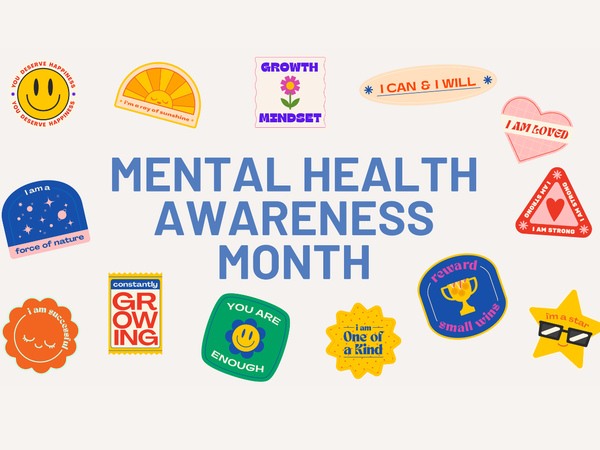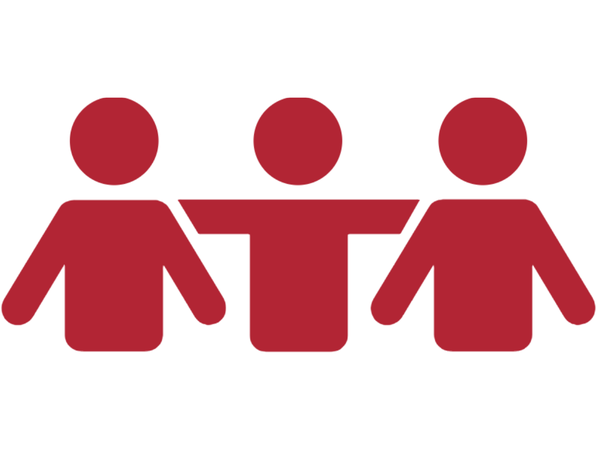Empowering students with language-based learning differences

Siena Blog



The Siena School Blog
Discover, Learn, Celebrate, and Empower
Welcome to Siena's blog, your source for helpful, cutting-edge resources tailored to teachers, parents, and other advocates in the learning differences community. We are dedicated to providing a wealth of curated knowledge spanning various topics, ranging from dyslexia advocacy and awareness to classroom teaching strategies, heritage month profiles, and social and emotional health.
Discover innovative classroom strategies that inspire creativity and foster a love of learning.
Our commitment to social-emotional wellness ensures that we provide valuable insights into healthy student development and self-advocacy.
Discover resources, reading and podcast recommendations, volunteering opportunities, and more for parents in the LD community.
Our important heritage month posts highlight key people, offer reading and podcast recommendations, and more.
Mental Health Awareness Month 2025

Avg. read time: 3 min.
Mental Health Awareness Month 2025
In honor of the Mental Health Awareness Month 2025 theme, “In Every Story, There’s Strength,” Siena is highlighting some important ways to raise awareness and share strategies for various mental health and neurodiverse needs.
There are many misconceptions and stigmas about mental health and receiving support, and our stories of self-care can help us to reduce stigma, increase empathy and awareness, and be proactive in terms of caring for our mental well-being.
How Parents Can Support Their Children’s Mental Health
There are a few ways we can regularly turn awareness into action, such as the following:
- Increasing understanding
- Reducing misconceptions
- Encouraging help-seeking
- Promoting empathy and compassion
- Challenging stigma
- Using or offering support networks
- Promoting positive representations
- Normalizing therapy and mental self-care
An easy way for parents to check in with their children’s own mental and emotional well-being is to have a conversation (even a short one). Here are some sentence starters to help facilitate that conversation:
- “I notice that you seem ___. Do you want to talk?”
- “What is an emotion that you are feeling right now?”
- “Tell me more about what you are experiencing….”
- ”I want to help. Would support or space right now help you most?”
Although your child might not want to share their story at that particular moment, it’s always important to encourage (and be available for) positive and healthy conversation surrounding feelings and emotions.
Sometimes, our children can be on opposite ends of the spectrum, from not talking at all to hyperbolizing emotions. Parents and other caregivers can be the “calm” and the anchor that your child needs when they feel strong emotions. Showing up consistently and being available for support will go a long way for your child as they continue to tell their stories on their own terms.
Another action we can take is showing empathy, curiosity, and understanding whenever possible, which in turn models good mental health behavior for children so they can contribute to a more accepting and positive environment for all.
Mental Health Resources for Parents
It can be a challenge for parents to navigate when to get support for their child, as well as to find a provider that fits. Below are some helpful resources to get started:
- Anxiety Institute
- Child Mind Institute
- Kingsbury Wellness & Learning Group
- National Council for Wellbeing (includes a free downloadable checklist)
- Psychology Today
Siena Resources
For additional information from The Siena School blog to help navigate students’ social–emotional health, see this post from last year about summer mental health awareness, as well as these about learning differences and confidence and online and offline boundaries for teens.
The Siena School, a national leader in dyslexia education, serves bright, college-bound students with language-based learning differences on DC Metro area campuses in Silver Spring, MD (grades 3-4 and 5-12) and Oakton, VA (grades 3-12).
Support and Self-Care Over the Holidays

Avg. read time: 3 min.
As we approach the holiday season, you may be feeling lots of emotions—excitement, gratitude, relief, anxiety, frazzle, overwhelm…sometimes all of these at once.
Rest assured: this is very normal.
I want to take this opportunity to share some tips and reminders for supporting both your families and yourselves—all year round but especially during the holiday season. Ultimately, I hope that you enjoy your time with those you care about, and I also encourage you to take time for yourself.
Parents Supporting Themselves
Holidays can be especially overstimulating for everyone; the impact on our neurodiverse population is more severe. This can require additional emotional support for families during what is also a fun and family-centric time.
During such an engaging and active time of year, remember that boundaries, self-care, and overall mindfulness are very important. Siena’s counseling office often shares holiday mental health tips with families, including:
- Schedule downtime: Holidays can very easily end up overscheduled with no time to relax, so reserve a few nights for your family (or just yourself!) to do whatever self-care works best.
- Eat, sleep, and hydrate: During the holidays, our routines are interrupted, and basic needs sometimes aren’t met. Help your family—and yourself—by prioritizing physical self-care.
- Get outside: Spending time outdoors can have major mental health benefits, such as lower stress, better mood, and increased empathy and cooperation. Make time to take daily walks.
- Acknowledge loss: For many people, the “happy holidays” come along with feelings of grief and anger. Maybe it’s the first holiday after a loved one’s passing, or there are traditions that highlight strained family relationships. Remind your children that their feelings are normal.
- Set everyone up for success: Plan ahead for (or avoid) situations that typically don’t go well for your family. Don’t be afraid to remove yourself or your kids when boundaries aren’t respected. Children especially may need your support to know it’s okay to leave a tense situation.
Parents needing extra support can see these Child Mind Resources with a laundry list of articles to refer to, including ones about traveling with children and taking the stress out of holiday gatherings.
Overall, the holidays are a great opportunity to gather with loved ones and engage in community traditions, which can also highlight neurodiverse students’ strengths, creativity, and energy.
Parents Supporting Neurodiverse Children
The needs of neurodiverse students was the central focus of Siena Forest Glen’s annual elementary and middle school performance. This fall the students performed an original adaptation of Fifty-Four Things Wrong with Gwendolyn Rogers, based on the novel by Caela Carter. Fifty-Four Things follows a girl who reads her confidential IEP report listing the emotional and personality traits that define who she is, including Lazy, Picky Eater, Talks Too Much, and many other things supposedly “wrong” with Gwendolyn.
By the end of Fifty-Four Things, though, everyone realizes Gwendolyn’s many strengths and energetic curiosity about the world around her. The story's major theme is how teachers and parents can meet neurodiverse children where they are and work with their differences and their diverse strengths. This resonated strongly with students, staff, and parents in the Siena community and matches how we support our students and embrace their strong qualities.
With ADHD diagnoses for children ages 3-17 rising, it’s especially urgent for parents and teachers to have shared knowledge about how to understand neurodiverse students like Gwendolyn. Among other available resources, these books are helpful guides in understanding neurodiversity and learning differences:
- Conquer Negative Thinking for Teens — Dr. Mary Karapetian and Alvord Anne McGrath
- Detox Your Thoughts — Andrea Bonior, PhD
- Freeing Your Child from Negative Thinking — Tamar Chansky, PhD
- How to Get Unstuck from the Negative Muck — Lake Sullivan, PhD
- Raising a Kid Who Can — Catherine McCarthy, Heather Tedesco, and Jennifer Weaver
- The Dyslexic Advantage — Drs. Brock and Fernette Eide
See also How Schools Can Support Neurodiverse Students from the Child Mind Institute.
The CDC regularly updates data and statistics on ADHD that affect students at home and in school. In the DC area, for example, The Chesapeake Center and Kingsbury Wellness offer testing and therapeutic services for families.
Additional Self-Care Resources
For additional information to navigate students’ social–emotional health, see posts about learning differences and confidence, online and offline boundaries for teens, and social media in our Social and Emotional Health section.
The Siena School, a national leader in dyslexia education, serves bright, college-bound students with language-based learning differences on DC Metro area campuses in Silver Spring, MD (grades 3-4 and 5-12) and Oakton, VA (grades 3-12).
How Parents Can Maintain Support Networks

It’s been quite a year, hasn’t it?
Given how much has changed in terms of parenting, schooling, work–life balance, and more, parents should remember that they’re not alone. A few months ago, Siena counselor Holly Rothrock wrote an excellent blog post on experiential self-care lessons. While originally written for students, these lessons are relevant for parents in caring for their mental health and feeling connected.
Online Resources for Support and Community
Siena’s website has a number of resources for parents about learning differences, college applications, and more. Here’s a list of books we have in our parent resources library that you might also find helpful. Parents needing to feel connected as more schools are reopening could check some of these educational resources:
- Parents’ Place of Maryland includes access to links, podcasts, and more about schooling, mental health, and COVID.
- The Parent Encouragement Program (PEP) has some resources specific to COVID and telework, as well as parenting classes, a blog, and resource library.
- Hey Sigmund has plenty of good material about anxiety management and sleep habits for kids.
- Child Mind Institute, while not a support group per se, has a lot of great information to complement the above resources.
Parents could also check if their children’s schools have any online groups for sharing resources, advice, and support.
Resources for Parents of Children with Learning Differences
- Community Connections for Parents is a support group for parents of children with learning differences, ADHD, and anxiety.
- The Study Pro (Virginia) hosts a learning series for parents. The topics range from executive functioning and anxiety to writing coaching for various grade levels.
- ADDitude has ample information for ADHD and a discussion forum.
- On Facebook, parents can consider joining Dyslexia Support and/or Decoding Dyslexia MD. Dyslexia Support is a private group that offers practical advice, book recommendations, and emotional support. Decoding Dyslexia MD is a public group with posts on where to find a tutor, where to get your child assessed, questions about schools, and more.
- WISER has events, webinars, experts, and more for parents of children with learning differences.
- Understood has plenty of information for families, including the Understood Community.
See more of The Siena School blog’s resources for parents, including how new families can connect with the parent community.
Do you have any favorite or particularly helpful online resources to share? Comment below or email me. You can be anonymous if you wish.
Note: We do not endorse any of these websites or resources. Always check the privacy and appropriateness for your child.
